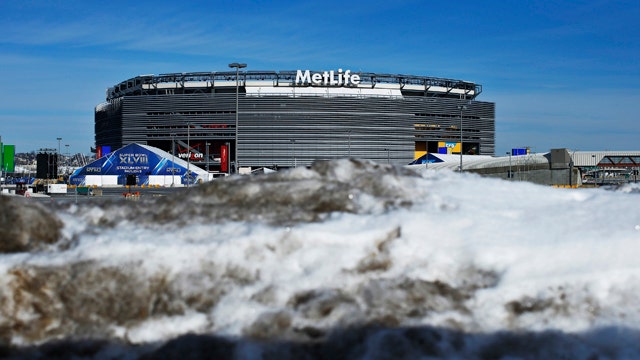Cold weather dangers for Super Bowl XLVIII athletes
It’s the first time the Super Bowl will be played outside in cold weather. Doctors say the odds of players getting hurt significantly increase as the temperature drops
It’s the first time the Super Bowl will be played outside in a cold climate – and it could be tough going for the Denver Broncos and Seattle Seahawks. Doctors say a player’s odds of getting hurt increase significantly as temperatures drop.
While as many as 1/3 of players can suffer injuries during warmer games, up to half run the risk of getting hurt in the cold – and the forecast for Sunday’s game calls for temperatures below freezing.
“When temperatures go below freezing, the body adapts different ways,” said Dr. Robert Gotlin, director of orthopedic and sports rehabilitation at Beth Israel Medical Center in New York City. “And one of the ways it adapts is to try to maintain body heat. So what happens is while the body is okay, the hands and feet suffer.”
Gotlin said injuries such as frostbite and muscle pulls are common when playing in frigid temperatures and that extreme cold can also affect a player’s strength.
“The cold weather decreases our strength because we have decreased blood flow to the hands,” Gotlin said. “And reaction time is different. Trying to block somebody, or catch a pass, or run a route can be different in cold weather, because we just don't process it right…The blood flow is going to our brain, and our heart, and our lungs and not our hands and our feet.”
Of course, this won’t be the first time the Broncos and the Seahawks have played a game outside in the winter. The teams train to perform in all conditions, but even when players feel mentally and physically prepared to play in the cold, they are still at risk for injury.
“So many factors come into play, and [players] who you see…wearing short sleeves, we say 'How can they do that?'” Gotlin said. “[It’s] because they have endorphins. They have their body geared up for the game. They have increased blood flow mentally, but still injuries may occur and do occur."
However, Gotlin said dietary adjustments could help players prepare for frigid game day temperatures.
"Meal plans will be different in cold weather; they'll prepare differently,” Gotlin said. “They'll have almost like a marathon preparation by changing their meals. So that'll increase blood flow as well and increasing the most important part of the blood, which is the glucose, to keep them free from injury.”









































